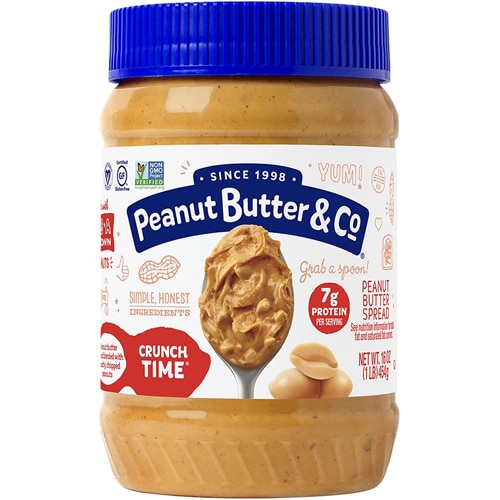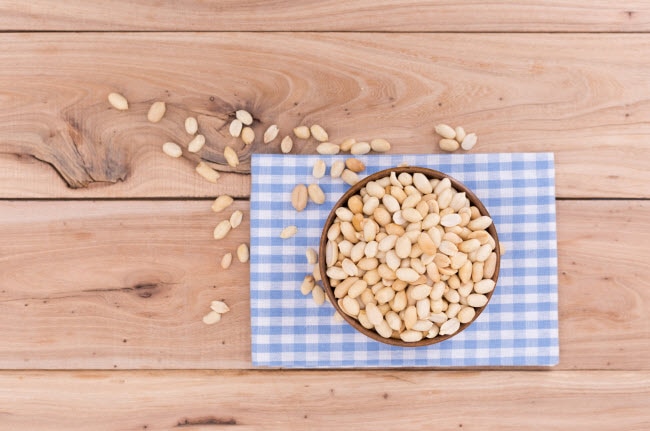Want to give your health a quick and easy boost this spring? Try munching on a handful of peanuts every day.
Research shows that eating the popular legume can help you lower the risk of several serious illnesses, says Samara Sterling, a nutrition scientist and research director at the Peanut Institute in Albany, Georgia.
“It’s relatively easy to incorporate peanuts and peanut products into the diet, especially since just a small amount is needed to reap the health benefits,” she says.
March is National Peanut Month, the perfect time to learn more about the benefits of going crazy over these nuts.
Health benefits of peanuts
For starters, peanuts boost heart health. Peanuts are rich in healthy fats and phytosterols, which help to lower “bad” cholesterol, formally known as LDL – or low-density lipoprotein – cholesterol, Sterling says.
Other cholesterol-reducing compounds found in peanuts include:
- Resveratrol
- Phenolic acids
- Flavonoids
Peanuts also contain more protein and more arginine than other nuts.
“Arginine is an amino acid that keeps blood vessels flexible, which can help reduce heart disease risk,” Sterling says.Because peanuts are low in carbohydrates and high in fiber, they can reduce the danger associated with diabetes.
“Consuming peanuts and peanut butter helps to prevent spikes in blood sugar after eating,” Sterling says.
In fact, the American Diabetes Association lists peanuts and other nuts as "superfoods," meaning they supply the body with key nutrients while also ranking low on the glycemic index.
Eating peanuts also may lower your risk of developing cancer. Peanuts contain antioxidants and bioactive compounds that are believed to reduce cancer risk by either destroying harmful compounds or making it harder for cancer cells to grow, Sterling says.
Rachel Paul, a New York-based registered dietitian and founder of Rachel Paul Nutrition, adds that because peanuts have a lot of protein and fat, it makes them "incredibly filling and satisfying."
That means eating peanuts may help satisfy your hunger, making you less likely to overeat other foods.
The downside of peanuts
However, as with any food, peanuts can become too much of a good thing if you overindulge.
"Eating too much of anything can be dangerous," Paul says.
Peanuts are high in calories, so eating too many can quickly add inches to your waistline. Peanuts also can be high in sodium unless you eat unsalted varieties.
Because peanuts are high in both protein and calories, the U.S. Department of Agriculture urges people to eat them as a substitute for – rather than in addition to – some meat-based dishes.
Finally, some people – particularly the very young and very old – may find it difficult to chew peanuts, Sterling says.
Enjoying peanuts the right way
To keep from overindulging on peanuts, measure out the amount you plan to eat.
"Many people would benefit from measuring out 1/8 to 1/4 cup at a time,” Paul says
Another way to moderate your intake is to buy single-serving packs of peanuts, Paul says. "Or make your own single-serving packs to help with potion control," she adds.
Sterling suggests eating 1 ounce of peanuts a day, which equates to about a handful. “Additionally, 2 tablespoons of peanut butter is considered a serving,” she says
To safely introduce peanuts to infants, Sterling recommends giving a peanut teething snack such as Puffworks or Bamba to children between 4 months and 6 months of age. Another option is to add water to peanut butter to create a thin paste that is easily digestible.
For elderly people who struggle to chew nuts, peanut butter might make more sense.
“Peanut butter is also a good option because it is nutrient-dense and may not be difficult to chew,” Sterling says.
Another way to get peanuts into your diet is to consume peanut powder, which can be used as a protein supplement in shakes, or as a low-carb flour substitution in baked goods, Sterling says.
Finally, brings peanuts with you wherever you go, Paul says.
"Peanuts are also nonperishable, making them easy to carry with you or leave in your bag for whenever you're hungry," she says.




